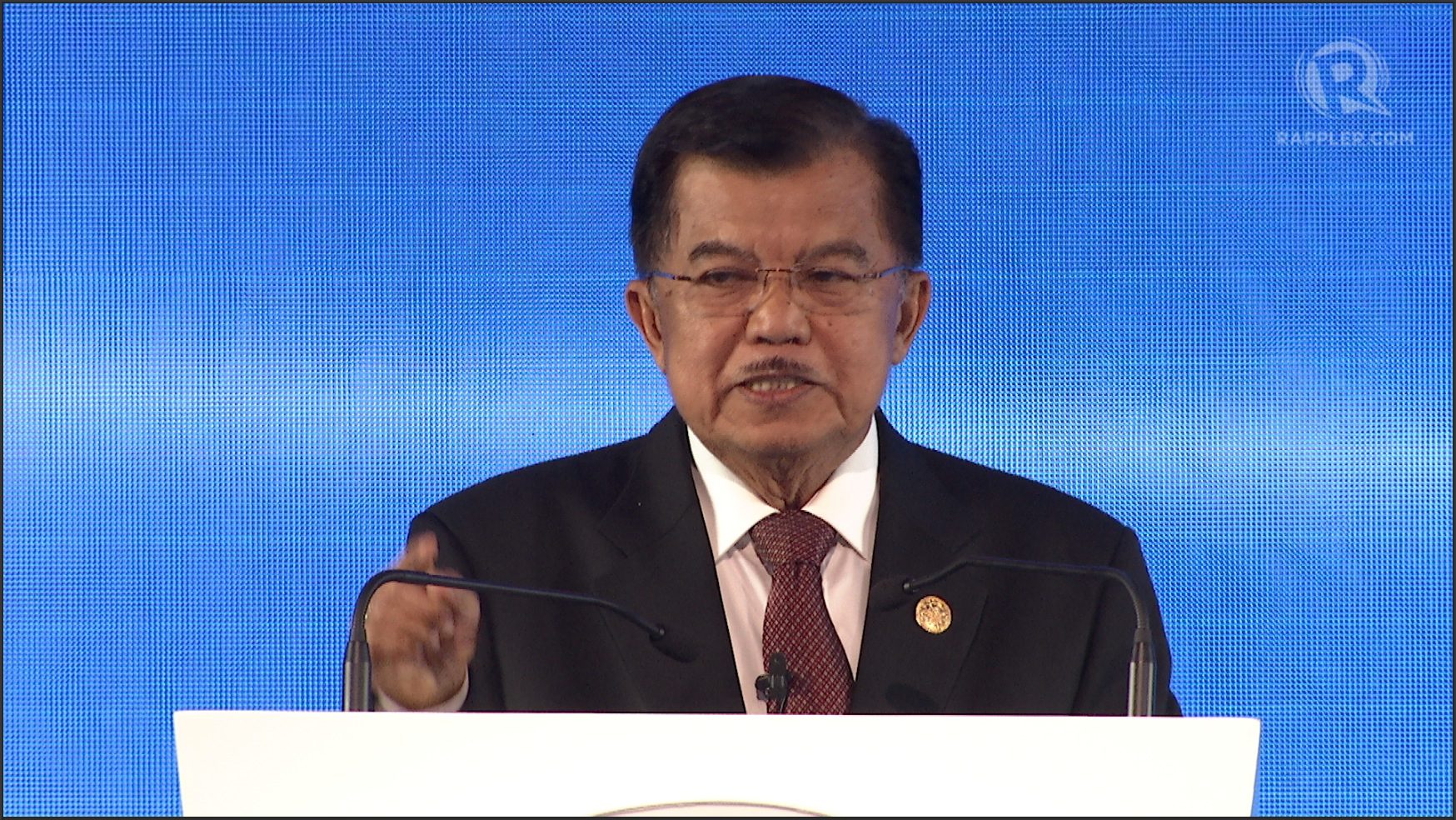SUMMARY
This is AI generated summarization, which may have errors. For context, always refer to the full article.

MANILA, Philippines – Indonesian Vice President Jusuf Kalla stressed cooperation among countries as the key for economic development among members of the Asia-Pacific Economic Cooperation (APEC).
On the 7th day of the APEC summit on Wednesday, November 18, Kalla said cooperation is at the heart of promoting the free flow of goods and services, spurring growth and development across the Asia-Pacific region.
“Indonesia continues to open its economy to businessmen and foreign investors, including APEC economies. In return, we hope that other countries will do the same,” Kalla said.
Kalla is representing Indonesian President Joko Widodo, known as Jokowi, in the regional meeting in Manila. In an earlier interview with Rappler Indonesia, Kalla said that his message at the summit would focus on “the advantages of cooperation” among member-economies.
“We will focus on the advantages of cooperation for the Indonesian economy like how trade, investment, SMIs, financial institution inclusion will be affected or (how it can be) improved, the situation here in Indonesia, with cooperation,” he said.
As Southeast Asia’s largest economy, Indonesia boasts strong human capital and growth potential in the manufacturing sector, Kalla said.
The Indonesian government, he added, is currently focusing on strengthening the agricultural sector and manufacturing industry to promote food security and secure stable employment for its 250 million population.
To achieve these goals, Kalla stressed the importance of “strong collaboration” between government and the business community.
Indonesia’s economic strategies
Much like its neighbor, the Philippines, inclusive growth is the Indonesian government’s keyword as it implements various policies to ensure economic sustainability.
Kalla said that Indonesia possesses strong economic fundamentals, with more than 60 million Indonesians expected to join the middle class in the next decade.
But the challenge for Indonesia is to overcome global economic uncertainty by putting certain policies in place to increase competitiveness and create a business climate conducive for investments.
Some of these strategies include improving infrastructure and rolling out stimulus packages to promote equal opportunity among businesses, provide affordable loans to small and medium enterprises, and develop additional special economic zones.
“The packages will stimulate business, enlarging the domestic market and promoting more investments,” Kalla said.
Other issues: TPP, haze problem
Indonesia’s focus on promoting trade comes as Jokowi pledged to join the Trans-Pacific Partnership – a US-backed trade pact that would create the world’s largest free trade area.
Asked about Indonesia’s expectations from the TPP, Kalla echoed Jokowi’s earlier statement that the country is currently studying how the trade pact would affect business and investments in Indonesia. (READ:TPP must draw in Indonesia to become even more successful)
The TPP agreement is seen by some as a counterbalance to China’s economic power in the region.
Kalla also took a question about the haze crisis affecting Southeast Asia. Indonesia’s forest fires have been blamed for the smog affecting nearby countries like Singapore and Malaysia. (INFOGRAPHIC: The Southeast Asian haze crisis)
Kalla apologized for the hazardous haze, explaining that the situation was exacerbated by the El Niño phenomenon which is affecting weather patterns across the Pacific basin.
He added that Indonesia did not want the forest fire smog to affect their neighbors, but “we cannot control the wind.”
While Indonesia is taking steps to control the situation, Kalla also appealed for international cooperation, expressing optimism that the climate talks in Paris next month will be a step forward in strengthening environmental commitments.
To underline the focus of his visit, Kalla ended his session with a two-word answer when asked what message he would like to send to APEC delegates: “Please come.” – Rappler.com
Add a comment
How does this make you feel?
There are no comments yet. Add your comment to start the conversation.